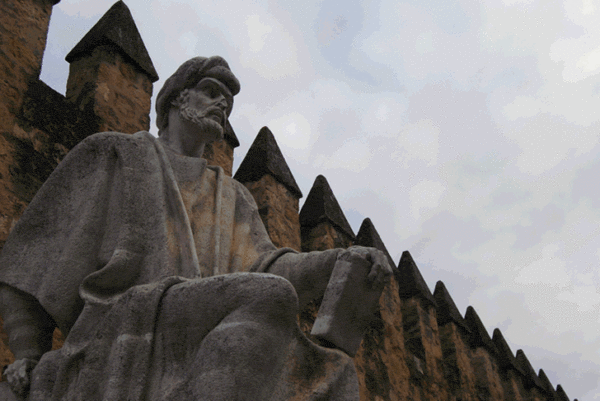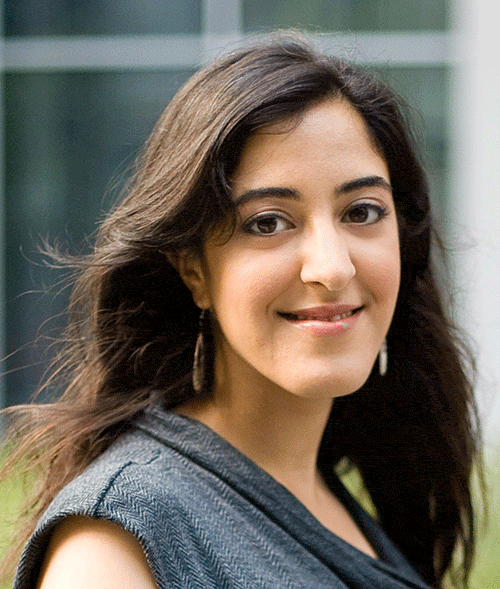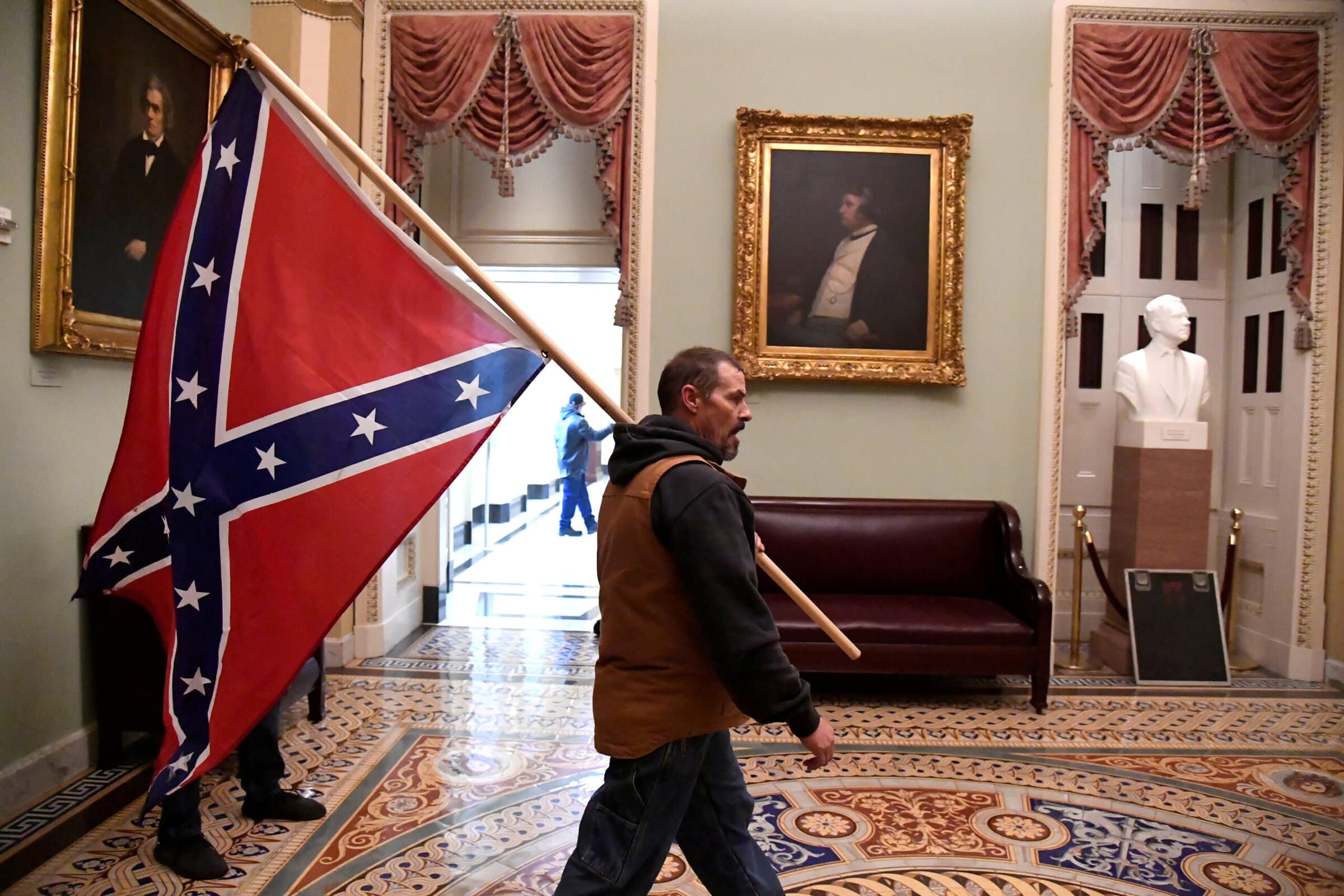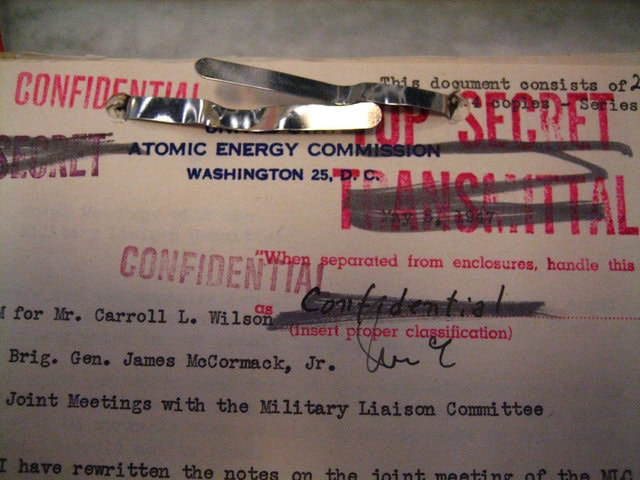Your grasp of facts and history is shaky #thinkagainturnaway,” reads a tweet from the State Department. “Al-Qaeda only knows death” was tweeted by @ThinkAgain_DOS, an English Twitter account of the department. These tweets were followed by pictures of dead Muslims, some beheaded and others crucified by al-Qaeda.
Three years ago, the United States added a new counterterrorism operation to its arsenal. Created by an executive order, the Center for Strategic Counterterrorism Communications (CSCC) attempts to dissuade potential al-Qaeda recruits through social media, in what the coordinator of this program, Ambassador Alberto Fernandez, calls a “negative hearts and minds campaign.” The CSCC argues with supporters of extremist groups in Arabic with the handle @DSDOTAR, and in Urdu with @USDOT_Urdu. Behind this project, which purposefully focuses its discussions on very recent history, are embedded distinct opposing views of the uses of history and historical narrative.
“The whole raison d’etre of al-Qaeda is deeply based in their reading or misreading of history,” Fernandez argued. “The al-Qaeda project is a Salafi jihadi project which is based on an appeal to an idealized golden age of Islam going back to the rightly guided caliphs. They present [Islamic history] in a way suited to their worldview and their appeal. So [when they] call for a caliph, they are not calling for a caliph like the one in 1925, they are talking about an idealized caliph going back to the early days of Islam.”

Photo by Flickr user Ana Rey, CC BY-SA 2.0
A sculpture of Ibn Rushd in Cordoba, Spain. Ibn Rushd was one of the Muslim philosophers of al-Andalus, the part of Spain that the Muslims ruled from 711 to 1492. That time is commonly referred to as the golden age of Islam, but it is not the world that al-Qaeda wants to return to. Al-Andalus was home to Muslim, Christian, and Jewish physicians, scientists, and philosophers who created new trends in their fields and intermingled with people from other religions. In that period Jewish communities produced great thinkers like Maimonides, Judah Halevi, and Moses ibn Ezra, who were influenced by Muslim thinkers. In that period, too, extremists existed; they attacked the philosophers for their innovative thinking and their adaptation of foreign ideas. Even though Ibn Rushd’s books were burned, many copies survived and were read widely across the Muslim world and beyond.
In a phone interview, Fernandez cited a video by the Islamic State of Iraq and the Levant that talks about marching on Jerusalem, eliminating the Jews, and conquering the Rūm. “When the Islamic State of Iraq and the Levant talks about reckoning with Rome, they talk about the eastern Roman empire as metaphor for the west.” The Muslims fought the Byzantine Empire in the Battle of Yarmuk in 636 and were successful in their conquest of Syria. “The third claim was reclaiming al-Andalus, Spain,” Fernandez continued. Al-Qaeda also ties the West to the crusaders and sees Western countries as waging a war against Islam.
In order to make these claims, al-Qaeda “piggybacks” on a narrative that Fernandez argues is popular among some Arab Muslim audiences—that Arab Muslims had a glorious past but were then victimized and treated unfairly. According to Fernandez, Arab nationalism of the 1950s, ’60s, and ’70s failed to address these concerns, so political Islam emerged: the Muslim Brotherhood, the “Wahhabi project in Saudi Arabia and Qatar,” and now the violent political Islam of al-Qaeda.
Al-Qaeda also uses historical terms in referring to other Muslims, like calling the Iraqi army the Safavid army. “So it’s all about history. Recent history, ancient history, but it’s deeply historical,” said Fernandez, who added that such usages are really an abuse of history.
Fernandez said that “modern individuals and ideologies use history for their own means. All political creatures make an appeal to history. They use it for their own ends. It’s not surprising that al-Qaeda would do so [while] appealing to a Muslim world that cares a lot about the historical record.”
The CSCC does not address the majority of al-Qaeda’s historical claims. “It is not our role to match them historical lie for historical lie,” Fernandez said. In order to contradict al-Qaeda’s view of the golden age of Islam, it would have to engage with religious texts and try to propose an alternative view of how the early Muslims lived. This, according to Fernandez, is not for the US government to do.
Rather, the CSCC focuses on recent history. “Al-Qaeda’s whole narrative is based on the idea that they are defending themselves. They are defending the Muslims. They are protecting the Muslims from this western, Jewish onslaught. And yet the overwhelming majority of the victims are Muslims. How do you defend something by destroying it?”
He describes a video produced by the CSCC, which shows images of prewar Syria when people smoked hookahs in cafés and listened to popular music, followed by a list of items al-Qaeda prohibits, including smoking. The majority of Muslims look back fondly to a tolerant past, Fernandez explained, and find al-Qaeda’s prohibitions and actions extreme and unreasonable.
“There’s a gap between the rhetoric and the reality. [Extremists] can talk about the caliphate, they can talk about the glories of Andalusia, but the reality is a dirty reality of them cutting the heads off of Muslims, slaughtering people in mosques, putting bombs in markets. That’s the reality. That’s modern history,” said Fernandez. He criticized al-Qaeda for putting “a historic garb on a sordid reality.”
Seth G. Jones, who wrote a history of al-Qaeda entitled Hunting in the Shadows, found that the terrorist group gained and lost strength in waves. Historical narrative and ideology are both important in every wave, he says. “The use of American military forces deployed to Iraq and Afghanistan were counter-productive,” he argued, because the United States “walked into an ideological narrative of foreign occupation, western occupation of a Muslim country, which in Iraq and in Afghanistan helped provide evidence to terrorist narratives that this is indeed a foreign occupation. When the US began to pull out, it tended to take away much of that narrative.” In other words, by invading Iraq, the US gave extremists what they could use as evidence for arguments about Western imperialism.
Al-Qaeda used that narrative in Pakistan while waging its own “hearts and minds” campaign on the Internet. Al-Qaeda used Internet forums, distributed cassettes, CDs, and DVDs to media outlets, and wrote documents. Jones said that “al-Qaeda in the Arabian Peninsula put together a series of magazines including Inspire Magazine which was devoted to propaganda, to push out their narrative, to try to bring in money, fund-raise, to encourage recruits, but also to encourage people to inspire individuals to radicalize and also to commit acts of violence even if they weren’t connected directly to the core al-Qaeda.”
In the meantime, both men and women at the State Department, many of them from Muslim countries, continue to tweet at extremist groups, reminding them that “wherever #al-qaeda goes killing & destruction always follow.”

This work is licensed under a Creative Commons Attribution-NonCommercial-NoDerivatives 4.0 International License. Attribution must provide author name, article title, Perspectives on History, date of publication, and a link to this page. This license applies only to the article, not to text or images used here by permission.
The American Historical Association welcomes comments in the discussion area below, at AHA Communities, and in letters to the editor. Please read our commenting and letters policy before submitting.
This work is licensed under a Creative Commons Attribution-NonCommercial-NoDerivatives 4.0 International License. Attribution must provide author name, article title, Perspectives on History, date of publication, and a link to this page. This license applies only to the article, not to text or images used here by permission.

.jpg)

